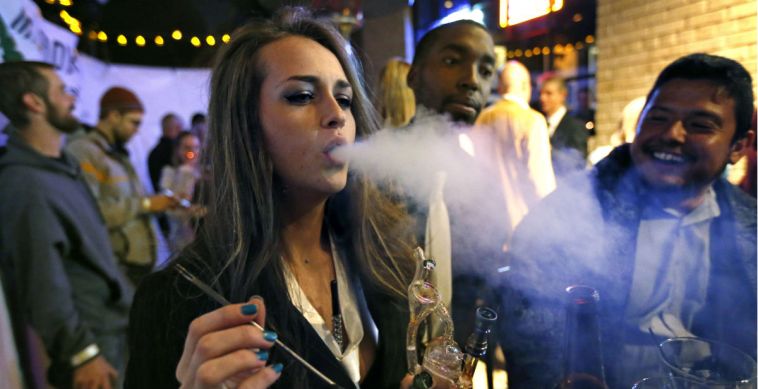On Thursday, it was announced that Attorney General Eric Holder will resign once a replacement is found. It could still be a while, in other words, but conservatives are already delighted that the hated Holder will be gone ASAP.
Videos By Rare
They were opposed to Holder for some very legitimate reasons, such as, oh, his running guns to Mexico and then getting away with lying about it.
Holder’s Department of Justice also oversaw the snooping on reporters for the Associated Press, as well as Fox News reporter James Rosen. Holder there, as he had with Fast and Furious’s gun walking scandal, claimed to not have been involved.
The whole secretly hashed out, but totally legitimate right to kill American citizens with drones thing was also kind of a dealbreaker for small government types as well.
An area on which Holder frustrated until quite recently was the issue on which he should have been so much better from the start: criminal justice reform.
Already, there has been some Twitter snark about how Holder announced his plan to resign two days after telling journalist Katie Couric that the US should “reconsider” marijuana being a schedule one drug.
Rare Under-40 Poll: What’s worse — Marijuana or alcohol?
Not that Holder’s leaving isn’t a net good thing, considering how many impeachment-worthy offenses he or his DOJ have committed. But what timing!
Finally Holder and Obama were timidly coming along on criminal justice reform, and now Holder will be out the door.
Like Obama, from early on his tenure, Holder talked a good game on the drug war’s absurdities. But the administration’s 2009 declaration that the war portion of the war on drugs was over was mere rhetoric, making the continued financial and moral outrage of the policy even more infuriating.
But then Sen. Rand Paul (R-Ky) and a few other members of Congress began pushing on issues such as reducing mandatory minimum sentencing. Paul began speaking on criminal justice reform all over the country, and sponsored would-be legislation such as the 2013 Justice Safety Valve Act, which would allow for judicial discretion in certain federal crimes where mandatory minimums apply.
When opinion began to change on the issue – propelled in great part by Washington state and Colorado legalizing recreational marijuana, and more and more states going for the medical kind – politicians including Holder and Obama timidly followed.
But while Paul, with allies such as Sen. Cory Booker (D-NJ), tried for concrete legislation, the DOJ continued on its path of acting magnanimous when it chose not to intervene, say, in the states where medical and recreational marijuana were legal.
After months of musing, Holder finally said Colorado and Washington state would be left alone to hammer out their state policies. Meanwhile, Booker and Paul tried to pass legislation that would guarantee it.
Since August 2013 the DOJ has also been instructing U.S. attorneys to lay off of certain low level drug offenders, or at least to figure out policies which are “consistent with our national priorities – for determining when federal charges should be filed, and when they should not.”
The so-called Smart on Crime initiative was a good step towards sanity in drug policy, but it was still merely instructional.
Holder has always had the power to reschedule drugs, which would be an enormous, concrete step towards changing drug policy. But for someone who has critiqued American criminal justice, he has never seemed interested in risking the political capital to actually change it as much as he could.
As for the Smart on Crime initiative, well, even Think Progress noted last year that neither it, nor any other Obama administration directive have translated to significant budget cuts.
Bringing your war on drugs budget down to the level of George W. Bush’s isn’t exactly the fuzziest, most progressive policy. Billions are still being spent on national and statewide enforcement of drug laws, and half the people in prison are there because of drugs.
Another good step from Holder was the DOJ’s long overdue attempts to finally institute a streamlined clemency program for federal prisoners who had served years on nonviolent drug charges. Here again, Obama managed to seem bold in his reform efforts, even though he spent the first five years of his presidency being harshly criticized for using his clemency and pardon powers less often than any other president barring William Henry Harrison and James Garfield.
Though these efforts do not go far enough, they may be able to help scores of thousands of people. That’s not nothing. We just need more of it.
Holder and Obama don’t necessarily deserve much credit for blowing with the winds of change, as Colorado and Washington state legalized marijuana, and politicians from Gov. Rick Perry (R-Tx) to Senate Majority Leader Harry Reid (D-NV) decided we should either take a federalist approach, or at least relax on the medical stuff.
Though it’s easy to see Democrats getting history book write-ups for these movements, the drug war backlash has no one origin. There seems to be a growing realization that it was a disaster of a policy. When you throw folks in prison for possessing a drug that – count it! – 100 million Americans have tried, perhaps a popular backlash is inevitable.
Still, while Holder used and abused power in myriad ways, he could have been much worse on criminal justice reform.
To paraphrase John Stossel, Holder may be standing in front of the parade to end the war on drugs and pretending to lead it. That’s far better than trying to grind it to a halt.

